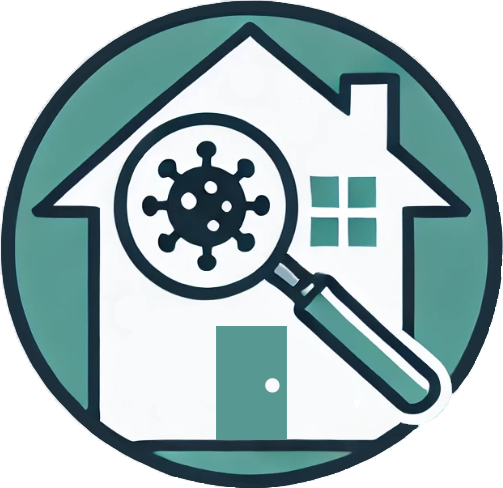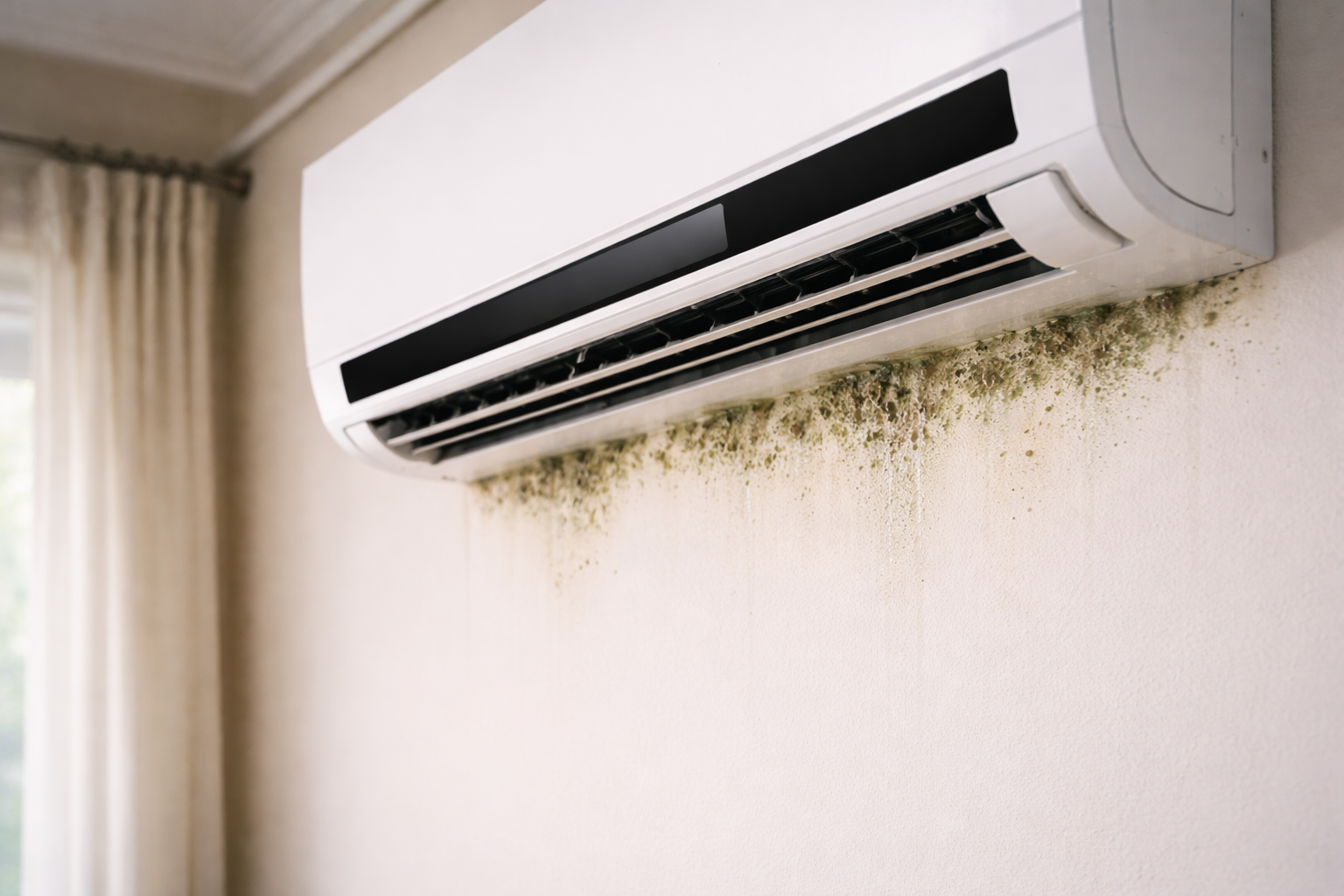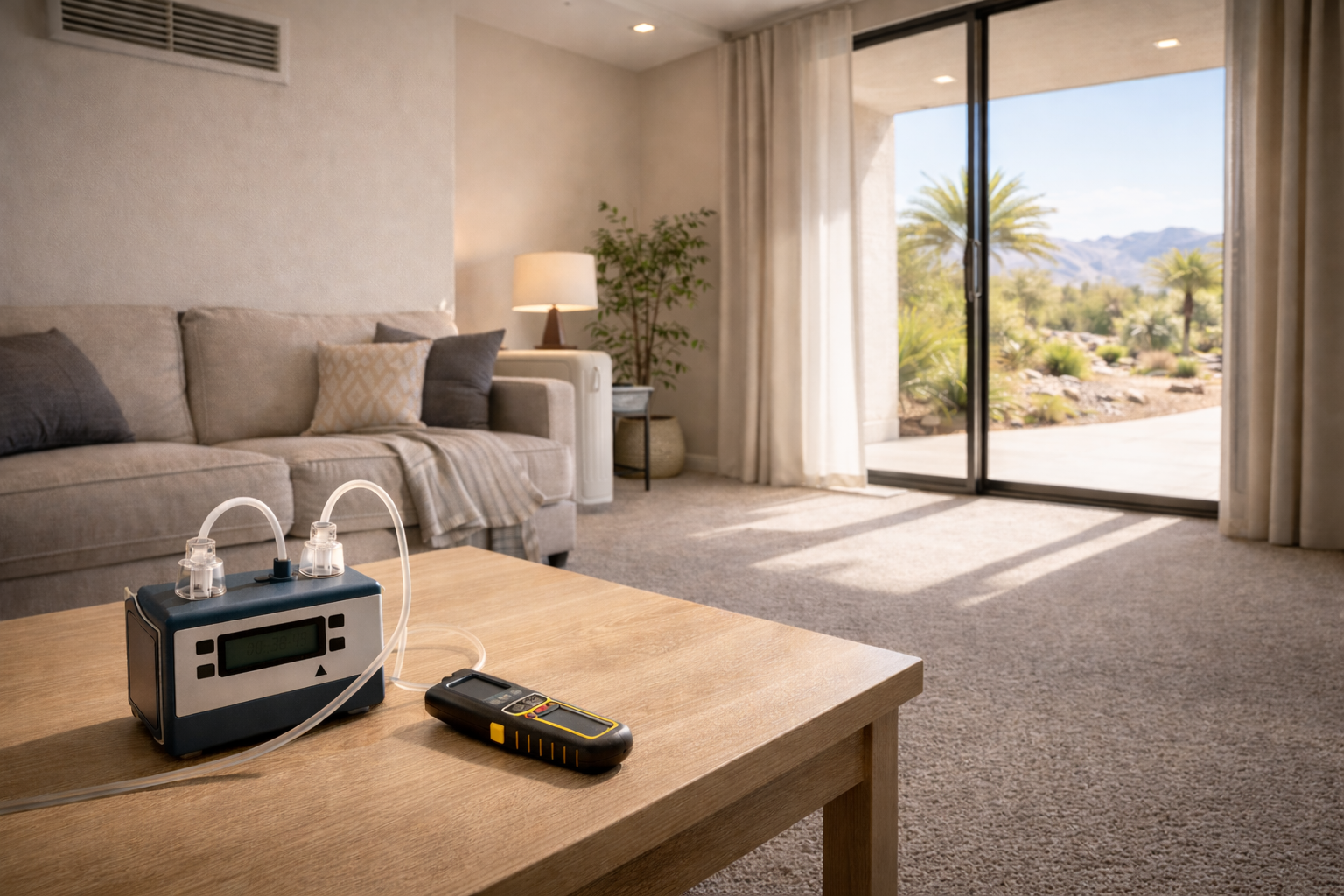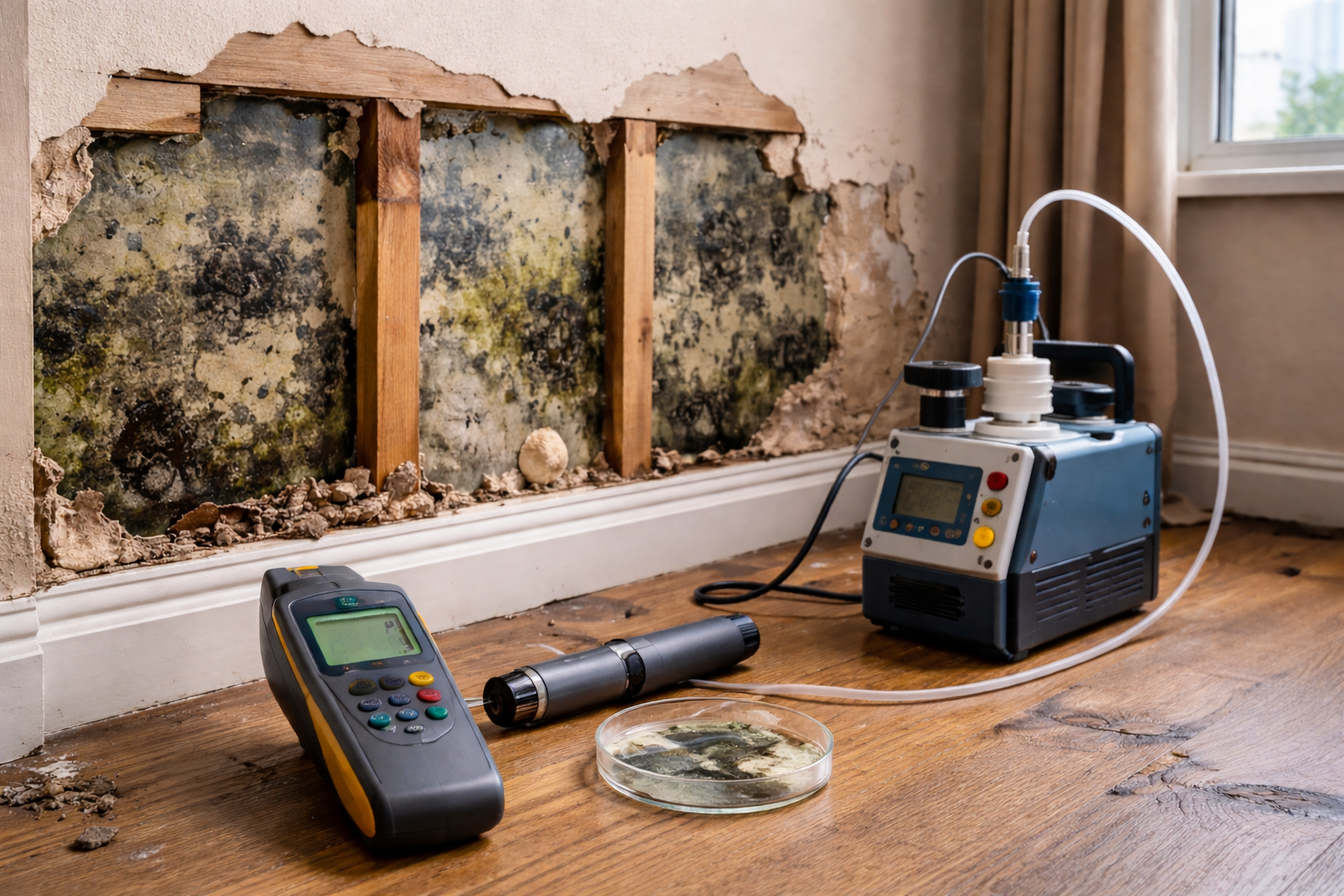How FLIR Thermal Imaging Detects What You Can’t See
Mold doesn’t always make itself obvious. By the time you notice dark stains on a wall or smell a musty odor, the problem may already be widespread. Mold can grow behind drywall, beneath flooring, or inside HVAC systems where it’s invisible to the naked eye. That’s where advanced technology like FLIR thermal imaging comes in.
At Las Vegas Mold Testing, we use
thermal imaging cameras to uncover hidden moisture problems and potential mold growth before they become major health and property concerns. Here’s how this powerful tool helps detect what you can’t see.

What Is FLIR Thermal Imaging?
FLIR (Forward Looking Infrared) thermal imaging is a non-invasive tool that detects differences in surface temperature. Instead of showing visible light like a standard camera, a FLIR camera shows heat signatures, allowing inspectors to see where moisture may be trapped.
Moisture inside walls or ceilings often causes cooler surface temperatures compared to surrounding dry areas. By reading these subtle differences, thermal imaging highlights “hot spots” or “cold spots” that point to potential water damage or hidden leaks—prime conditions for mold growth.
Why Mold Hides in Las Vegas Homes
Las Vegas homeowners might assume mold isn’t a concern in the desert climate, but indoor conditions tell a different story. Air conditioning condensation, roof leaks from monsoon storms, and plumbing issues can all create hidden moisture pockets. Since these areas are often behind drywall or under flooring, mold can grow undetected for months.
That’s why visual inspections alone aren’t enough. Without the right technology, hidden mold may remain undiagnosed until it spreads or triggers health issues.
Advantages of Thermal Imaging in Mold Inspections
Using FLIR thermal imaging provides several important benefits during a mold inspection:
1. Non-Destructive Testing:
Thermal imaging allows inspectors to detect hidden issues without tearing into walls or ceilings. This saves homeowners time, money, and unnecessary repair work.
2. Accurate Moisture Detection:
Mold needs moisture to grow. By pinpointing areas with abnormal temperature differences, inspectors can identify exactly where water intrusion is occurring—even if the surface looks dry.
3. Early Problem Identification:
Catching hidden leaks early prevents small moisture issues from turning into full-blown mold infestations.
4. Comprehensive Documentation:
FLIR thermal images can be included in inspection reports, giving homeowners clear visual proof of where potential mold risks exist. This documentation is especially valuable for insurance claims or real estate transactions.
Why FLIR Alone Isn’t Enough
While thermal imaging is an invaluable tool, it’s not a stand-alone solution. Cool spots detected on a thermal camera don’t automatically mean mold is present—they only point to areas where moisture may exist.
That’s why Las Vegas Mold Testing pairs FLIR imaging with air and surface sampling, as well as lab analysis. Together, these methods provide a complete picture:
- Thermal imaging finds moisture sources.
- Mold testing confirms contamination and identifies mold species.
- Lab results provide accurate, defensible data for next steps.
This combination ensures homeowners aren’t relying on guesswork or incomplete information when making decisions about remediation.
Why Choose Las Vegas Mold Testing
Not all mold inspection companies in Las Vegas use advanced tools like FLIR thermal imaging. At Las Vegas Mold Testing, we invest in this technology to provide our clients with the most thorough, non-invasive inspections possible.
Our approach focuses solely on scientific accuracy and unbiased reporting—we don’t sell remediation services. That means you can trust our findings to guide your next steps with confidence.



